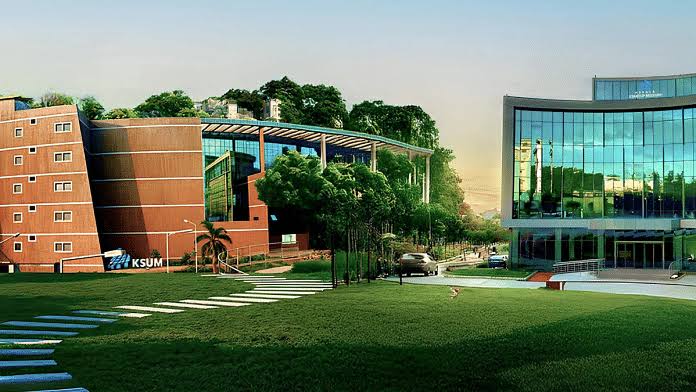Kerala, which has long been famous for its natural beauty and low rates of illiteracy, is today a global model of inclusive startup economies, an exemplar of innovation founded on equity and public value. In the last decade, the state has become a hotspot of grassroots entrepreneurship, with over 6,500 registered startups—many of them in rural and semi-urban regions—addressing real-life issues in health, education, agriculture, climate, and digital services.
The process started in classrooms. In 2014, the Kerala state government launched Innovation and Entrepreneurship Development Centres (IEDCs) in colleges, now more than 530 strong—the biggest student-led innovation network in India. This introduced students to freedom to experiment, prototype, and venture into business, and hence the seed for a successful startup culture was sown.
Kerala's model is unique in its decentralization and inclusiveness. While most hubs have a focus in metros, Kerala brought resources like mentorship, co-working (LEAP Co-works), and funding to villages and small towns. This made entrepreneurship available to the youth of the entire state, and not just cities.
There has been strong government support. Kerala Startup Mission (KSUM) has invested more than $10 million, formed five active angel networks, and developed deep infrastructure—such as 10,000+ co-working places, 22 prototyping labs, and large incubators such as the Super FabLab in Kochi, equipped with MIT. The state budget for 2025-26 had ₹517.64 crore for IT and innovation, including ₹10 crore for GPU clusters, ₹10 crore for a fund-of-funds scheme, and ₹90.52 crore for youth entrepreneurship programs. Kerala startups have made waves globally with their impact and sustainability focus. Developments such as the Kairali AI chip, the first generative AI bot tutor 'Iris' in India, and solar ferries reflect the state's drive to address local and global issues. The ecosystem has expanded 254% in worth since 2021—higher than the global average—and is today one of Asia's highest-ranked for value-for-money talent.
With ambitious goals of creating 15,000 startups and 1 lakh jobs by 2026, Kerala is now focusing on deep tech, artificial intelligence, climate, creative industries, and women-driven startups—innovation making it future-ready, inclusive, and accessible.
Key Highlights:
-
Over 6,500 registered startups, with high rural and women's participation.
-
India's largest student innovation ecosystem in higher education comprising 530+ IEDCs.
-
Decentralized model: LEAP Co-works, co-working spaces, and support in small towns.
-
Robust government backing: $10+ million investment, five active angel networks, 10,000+ co-working spaces, 22 prototyping centers.
-
2025-26 budget: ₹517.64 crore for IT/innovation, ₹90.52 crore for youth entrepreneurship, ₹10 crore for GPU clusters.
-
Global recognition: Ranked top in Asia for affordable startup talent, ecosystem value surged 254% since 2021.
-
Emphasize future development in deep tech, AI, climate, and creative industries.
-
Innovations: Kairali AI chip, AI robot teacher 'Iris', solar ferries.
-
Vision: 15,000 startups and 1 lakh jobs by 2026.
Source:ThePrint, World Economic Forum, Inc42, Kerala Budget 2025-26
ThePrint, World Economic Forum, Inc42, Kerala Budget 2025-26Kerala, which has long been famous for its natural beauty and low rates of illiteracy, is today a global model of inclusive startup economies, an exemplar of innovation founded on equity and public value. In the last decade, the state has become a hotspot of grassroots entrepreneurship, with over 6,500 registered startups—many of them in rural and semi-urban regions—addressing real-life issues in health, education, agriculture, climate, and digital services.
The process started in classrooms. In 2014, the Kerala state government launched Innovation and Entrepreneurship Development Centres (IEDCs) in colleges, now more than 530 strong—the biggest student-led innovation network in India. This introduced students to freedom to experiment, prototype, and venture into business, and hence the seed for a successful startup culture was sown.
Kerala's model is unique in its decentralization and inclusiveness. While most hubs have a focus in metros, Kerala brought resources like mentorship, co-working (LEAP Co-works), and funding to villages and small towns. This made entrepreneurship available to the youth of the entire state, and not just cities.
There has been strong government support. Kerala Startup Mission (KSUM) has invested more than $10 million, formed five active angel networks, and developed deep infrastructure—such as 10,000+ co-working places, 22 prototyping labs, and large incubators such as the Super FabLab in Kochi, equipped with MIT. The state budget for 2025-26 had ₹517.64 crore for IT and innovation, including ₹10 crore for GPU clusters, ₹10 crore for a fund-of-funds scheme, and ₹90.52 crore for youth entrepreneurship programs. Kerala startups have made waves globally with their impact and sustainability focus. Developments such as the Kairali AI chip, the first generative AI bot tutor 'Iris' in India, and solar ferries reflect the state's drive to address local and global issues. The ecosystem has expanded 254% in worth since 2021—higher than the global average—and is today one of Asia's highest-ranked for value-for-money talent.
With ambitious goals of creating 15,000 startups and 1 lakh jobs by 2026, Kerala is now focusing on deep tech, artificial intelligence, climate, creative industries, and women-driven startups—innovation making it future-ready, inclusive, and accessible.
Key Highlights:
Over 6,500 registered startups, with high rural and women's participation.
India's largest student innovation ecosystem in higher education comprising 530+ IEDCs.
Decentralized model: LEAP Co-works, co-working spaces, and support in small towns.
Robust government backing: $10+ million investment, five active angel networks, 10,000+ co-working spaces, 22 prototyping centers.
2025-26 budget: ₹517.64 crore for IT/innovation, ₹90.52 crore for youth entrepreneurship, ₹10 crore for GPU clusters.
Global recognition: Ranked top in Asia for affordable startup talent, ecosystem value surged 254% since 2021.
Emphasize future development in deep tech, AI, climate, and creative industries.
Innovations: Kairali AI chip, AI robot teacher 'Iris', solar ferries.
Vision: 15,000 startups and 1 lakh jobs by 2026.
Source:
ThePrint, World Economic Forum, Inc42, Kerala Budget 2025-26
